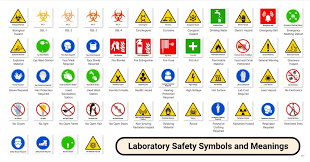
This comprehensive course on Laboratory Hazards is designed to equip participants with the knowledge and skills necessary to recognize, assess, and manage various hazards encountered in laboratory settings. Covering chemical, biological, physical, and ergonomic hazards, the course emphasizes the importance of safety protocols and emergency preparedness.
Participants will learn how to identify potential risks, interpret safety data sheets (SDS), and implement best practices for safe laboratory operation. Through engaging lectures, interactive discussions, and practical demonstrations, attendees will gain insights into effective risk management strategies and the significance of personal protective equipment (PPE).
By the end of the course, participants will be able to confidently navigate laboratory environments, ensure compliance with safety regulations, and foster a culture of safety in their workplaces. This course is essential for laboratory personnel, supervisors, and anyone involved in research or industrial laboratory activities.
- Teacher: staphrolah jelimo
